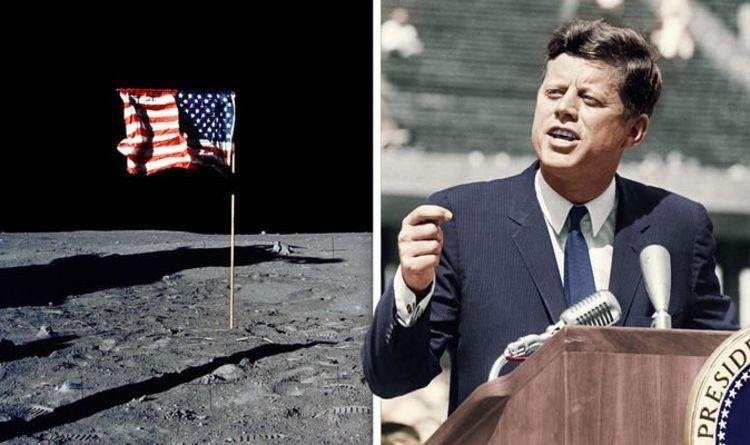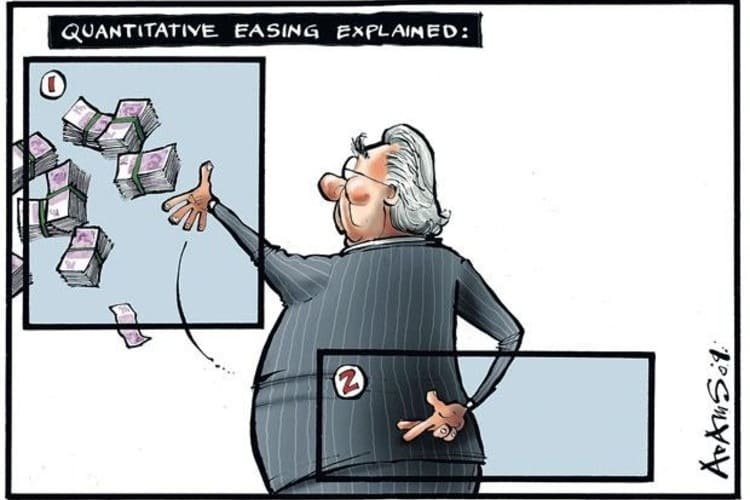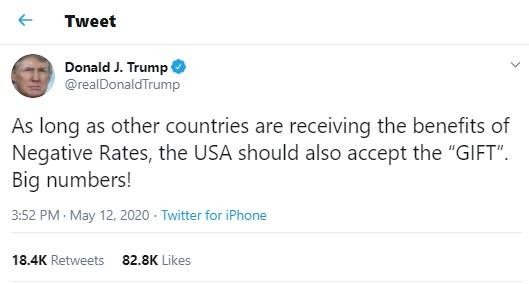Missing the Value of Money: The Time For “Blockchain Woods” Has Come

OPEN LETTER TO THE GOVERNORS OF THE 6 LEADING CENTRAL BANKS:
Dear Jerome Powell (USA), Christine Lagarde (EU), Andrew Bailey (UK), Haruhiko Kuroda (Japan), Guo Shuqing Yi Gang (China), Elvira Nabiullina (Russia), I miss the value of money!
I remember when I was 7 years old, and had saved money from doing chores. You know, help out mom and dad, the neighbors, the grandparents, a dime here, a quarter there. With exclusively relying on fruits of my labor, I was able to grow my little piggybank. For one odd reason I preferred to convert small change into bigger coins, and later, if possible into banknotes. The moment I could change my nickels, dimes, quarters, guilders into a 10 guilder note, and hold that 10 guilder note in my hands, store it safely into my piggybank, that moment was, I can now say 50 years later, THE moment I felt rich. I have never felt richer, and more in possession and control of MY money than at that moment.

We now laugh at the mere sum of say then 5 dollar, which in today’s money would be 22 euro and change or 25 US dollar. But, after all these years, I sometimes think, that was the moment – without knowing precisely why, let alone realizing what alternatives there could possibly be – I felt the need for, and subsequently fell for, decentralization.
For those who know the term but want to brush up on it, the term store of value refers to the function of an asset; it can be saved, retrieved and exchanged at a later time, and be predictably useful when retrieved. More generally, a store of value is anything that retains purchasing power into the future. Say inflation proof. According to the Cambridge cash-balance theory, the only reason there is a demand for money is the store of value function, much more so than being a medium of exchange.
What we have seen unfolding the past few weeks is that an unprecedented amount of money is being poured into the economy. Recently, Paul Tudor Jones (one of Wall Street smartest hedge fund managers) drew our attention to the fact that $3.9 trillion of money has been printed since February:
“It happened with such speed that I was left speechless. We are witnessing the Great Monetary Inflation — an unprecedented expansion of money unlike we have ever seen.”
To put that $ 3.9 trillion in perspective, that is 6.6% of our collective global economic output, and we are still at the beginning of the pandemic and cannot even begin to understand its ramifications.
In a lot of countries the cry for a Universal Basic Income gets louder and louder, and is suggested here and there. Almost 70% of the European Union populations seem to be in favor according to a survey from Dalia Research. This would be a monthly €1,000 euro per person pay check to every adult citizen in the European Union. With a population of 445 million, say 350 million of which are 18+, this would cost 350 billion euro per month which is a whopping 4.2 trillion euro per year. Of course this can be (partially) offset against other forms of payments and welfare checks, but still, it is hard to imagine this would not have a severe effect on the budgets of the individual EU countries. Somehow I am dreading that the old chestnut “tax the rich” is not going to cut it… Just to make sure, this 4.2 trillion euro per year for just the EU alone would be on top of all other stimulus and bailout packages there might come.
The side-effect of all these measures is that – again – we pump billions, trillions of dollars, euros, pounds, yens, yuans, rubles and what not in the economy. The effectiveness of the last time we did this, the 2008 financial crisis, is still debated. Whatever the choices that need to be made in these unprecedented times, the decision makers all realize they do not have the luxury to do nothing. It is easy being the Monday morning quarterback; politicians and decision makers cannot wait for solid scientific advice before they spring into action. I understand and respect that. But the big difference is that this time it isn’t printing more money anymore, this is handing out printers. And guess what, they replace the cartridges too, and restock the paper tray; home delivered, free of charge!

The Central Banks print money, buy debt in the form of corporate (junk) bonds, buy country’s bonds, and governments issue bonds, all in order to get cash. But, those loans and expenses will have to be repaid, or at least put on the balance sheets. The only way a government or Central Bank can do that “sustainable” is to hope for, or perhaps better said, secure low interest rates.
Let me give an example of my concerns. Banks in Europe can now loan money from the European Central Bank at negative interest rates, so “get paid” for the money they loan. Unfortunately some banks in return have put up their mortgage rates, claiming uncertainty in the financial markets, so that premium isn’t passed on to the real economy; this is not boding well.
In Germany and the Netherlands, for instance, the Treasury regularly issues 10-year bonds with negative interest rates. That means, and please let this sink in, that those Treasuries receive money for taking out a loan. You get paid when you take the loan, as long as you promise to pay the principal loan sum back. So, investors are willing to part with their money for 10 years, and on top of that pay up to 0.75% interest per annum to the Treasury, just to have the reassurance they get their money back after 10 years.

This isn’t even perverse; it shows first and foremost that there is no trust in the financial system as we know it. In order to secure financial stability, the governing actors end up eroding the system of trust more and more.
Blockchain anyone?
That said, I think it would be time to call a new Bretton Woods and reorganize the structure of finance; If there is ever an opportunity to do so — like there was in the aftermath of WW-II — this is it. We don’t need more money continuously pouring into a bottomless hole. We need to go back to the days where people can trust the system implicitly, and people are in control of their finances. It was when I was 7 years old…
Control of the financial system should not lie with the few bankers who keep receiving “get out of jail cards” as soon as dark clouds form, while taxpayers are the ones left holding the baby. Even more so — if you sometimes see that those banks are regulated by underfunded, understaffed regulatory bodies, who are simply trying to catch up with an ever faster changing and increasing complex reality. Not to mention that regulators, via legislation, get direction from politicians who are continuously exposed to consultants, lobbyists and stakeholders. No, enough is enough. We want and need a decentralized financial system for the people, by the people.
I am the Chairman of the DigiByte Foundation – a fully decentralized, non-funded public blockchain. The DigiByte Foundation brings that community together, and is merely the voice of its community. By that, the community becomes enabled, catalyzed, and empowered to transform aspiring ideas into groundbreaking achievements. Learning what decentralization is in the real world, and how it works with a real community isn’t easy, isn’t roadmapped, isn’t necessarily smooth sailing, but is something we can, will, have to and want to address. As President John F. Kennedy said in his famous Moon speech:
“We do these things not because they are easy but because they are hard, because that goal will serve to organize and measure the best of our energies and skills, because that challenge is one that we are willing to accept, one we are unwilling to postpone, and one which we intend to win.”

If anyone from a Central Bank, government or regulatory body is reading this, please allow me to say this. At your next get together, say, the next Bretton Woods Conference, please organize a side conference “Blockchain Woods”, and invite some insiders from the decentralized finance world, and get informed, learn from our views, learnings and insights. I do not have all the answers, far from it, but in all respect, neither have you. The key to a successful future does not lie in avoiding a conflict, or winning a dispute. It lies in successfully addressing the various points of view and differences that form and shape us. Embracing those differences, dealing with differences is an essential component of the decentralized community, and gives not only everyone involved the feeling of being heard, being included, being part of, but by restoring trust.
Calling Jerome Powell, Christine Lagarde, Andrew Bailey, Haruhiko Kuroda, Guo Shuqing Yi Gang, Elvira Nabiullina, please let us feel the value of money again. Have been missing that for 50 years!
About the Author:
Hans Koning is the Chairman of the DigiByte Foundation. He has been in the forefront of nascent and emerging technologies for over 25 years. Either as an advisor, investor, mentor, coach, lecturer, or simply as an observer, ever since the birth of the internet, he has been committed to guide new technologies in finding its way into society. The goal of the DigiByte Foundation is to protect and promote the true principles of decentralization, and empower DigiByte and its community to further establish and maintain a sustainable decentralized world.
Image by Wintrust